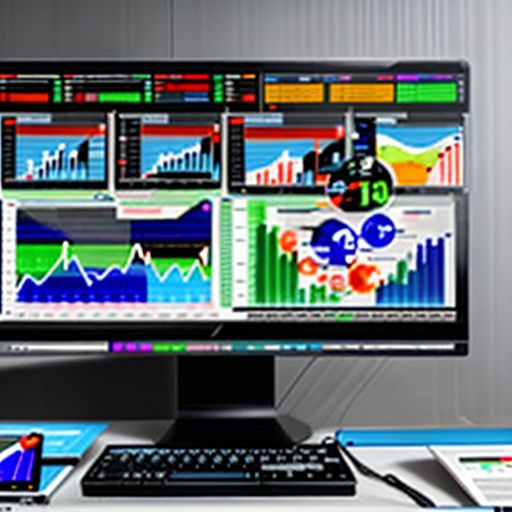In today’s competitive market, service companies are constantly seeking ways to streamline operations, improve efficiency, and boost profitability. One solution that has gained immense popularity is implementing Enterprise Resource Planning (ERP) software. But with so many options available, finding the Best Erp For Service Companies can seem like a daunting task.
This comprehensive guide will delve into the world of ERP systems, exploring the key features to look for, answering frequently asked questions, and ultimately helping you make an informed decision for your service business.
Understanding the Importance of ERP for Service Companies
What is ERP and Why is it Crucial for Service Businesses?
ERP software integrates all facets of a business into a unified system, encompassing financials, project management, human resources, customer relationship management (CRM), and more. For service companies, where efficiency and customer satisfaction are paramount, ERP plays a vital role in:
- Automating Processes: Streamline tasks such as invoicing, scheduling, and time tracking, freeing up valuable time and reducing errors.
- Enhancing Project Management: Gain real-time visibility into project progress, allocate resources effectively, and ensure on-time delivery.
- Improving Customer Relationships: Centralize customer data, track interactions, and provide personalized service.
- Optimizing Resource Utilization: Track employee time, skills, and availability to ensure the right people are assigned to the right projects.
- Gaining Real-Time Insights: Access dashboards and reports that provide a comprehensive view of business performance, enabling data-driven decision-making.
erp.backinhtravel.com/wp-content/uploads/2024/07/erp-software-dashboard-669a50.jpg" alt="ERP Software Dashboard" width="512" height="512">ERP Software Dashboard
Key Features to Look for in the Best Erp For Service Companies
When evaluating ERP solutions for your service business, prioritize features that address your specific needs and industry challenges. Some essential features include:
1. Robust Project Management Capabilities
Look for an ERP system with comprehensive project management tools, including:
- Project planning and scheduling: Gantt charts, task dependencies, and resource allocation features.
- Time and expense tracking: Accurate time recording, expense management, and automated invoicing.
- Project accounting: Track project budgets, revenue, and profitability.
- Collaboration and communication: Tools for team communication, document sharing, and task management.
2. Integrated CRM Functionality
A strong CRM module is essential for managing customer relationships effectively. Look for features such as:
- Contact management: Centralized storage of customer information, interaction history, and communication preferences.
- Sales force automation: Lead management, opportunity tracking, and sales forecasting.
- Customer service and support: Ticketing systems, knowledge bases, and self-service portals.
3. Flexible Deployment Options
Consider your business needs and budget when choosing between cloud-based and on-premises deployment.
- Cloud ERP: Offers affordability, scalability, and accessibility from anywhere with an internet connection.
- On-premises ERP: Provides greater control over data security and customization options but requires higher upfront investment and IT infrastructure.
4. Industry-Specific Functionality
Some ERP vendors specialize in solutions tailored to specific service industries. These industry-specific ERPs often include pre-built templates, workflows, and reports that align with your unique business processes.
FAQs About the Best Erp For Service Companies
How much does ERP software cost?
ERP pricing varies widely depending on factors such as the vendor, deployment model, number of users, and required features. Cloud-based solutions typically have lower upfront costs with subscription fees, while on-premises systems involve higher initial investment.
How long does it take to implement an ERP system?
Implementation timelines can range from a few weeks to several months, depending on the complexity of the software, the size of your business, and the level of customization required.
What are the benefits of using a cloud-based ERP system?
Cloud ERP solutions offer numerous benefits, including:
- Lower upfront costs and predictable subscription pricing.
- Scalability to accommodate business growth.
- Accessibility from any location with internet access.
- Automatic software updates and maintenance handled by the vendor.
What are some examples of popular ERP systems for service companies?
Popular ERP solutions for service businesses include:
- NetSuite
- Salesforce Sales Cloud
- Microsoft Dynamics 365
- SAP Business ByDesign
Conclusion: Making the Right ERP Decision for Your Service Business
Selecting the right ERP software is a critical decision for any service company looking to enhance efficiency, improve customer satisfaction, and drive growth. By carefully evaluating your business needs, researching different vendors and their offerings, and prioritizing essential features, you can find the best ERP solution to transform your service operations.
